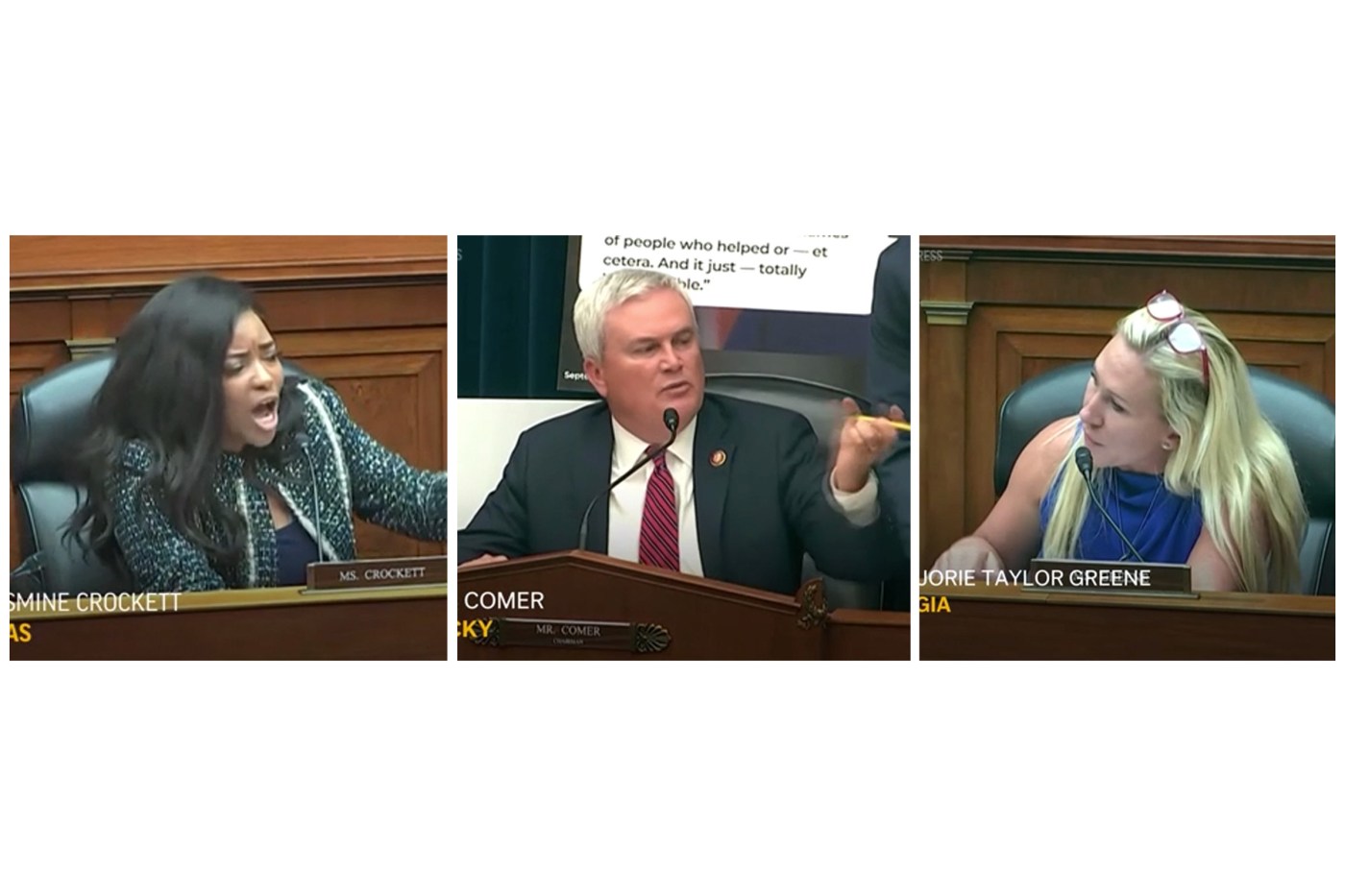An exchange between lawmakers during a House Oversight Committee last week has gone viral. Rep. Marjorie Taylor Greene, R-Ga., made a comment about the eyelashes of Rep. Jasmine Crockett, D-Texas. Making comments about personalities is restricted and subject to consequences, including the possibility of not being allowed to speak further.
Yet, the committee chairperson, James Comer, R-Ky., allowed Greene to attack her physical appearance. Due to Comer’s inability to manage the infraction, chaos ensued.
What can we learn if we analyze this political disorder through a sociological lens?
First, we see patriarchy and White supremacy. Women are vastly underrepresented in our political system at all levels and women of color are even less represented in the consolidated power of political spaces. Therefore, it is predictable that the person in charge of this committee, Comer, is a White male. Throughout the video, Comer is in immediate proximity to a team of mainly White male consultants. Because he is chairing the committee, the women involved must wait to be recognized by Comer.
Second, Comer has selective hearing along the intersection of gender, race and party lines. At one point, Comer doesn’t seem to recognize Crockett’s voice, turning to Rep. Jamie Raskin, D-Md., to learn who is speaking. And he has difficulty understanding Crockett, saying, “I have no idea what you just said.” To be sure, Comer acknowledges, “I have two hearing aids. I am very deaf. I’m not understanding.”
If Comer cannot understand because of lack of hearing, he needs better accommodations. However, it seems he has selective hearing, being less able to hear Crockett, a Black woman, in particular. Comer can clearly hear Greene and repeatedly urges the committee to “let Ms. Greene talk” even after her infraction. Rep. Alexandria Ocasio-Cortez, D-N.Y., continues to ask that the chairman strike the words of Greene and to remind him of the rules and that it is his job to enforce them.
Meanwhile, Comer bulldozes ahead, seeking to yield the floor to Greene. And, when Comer learns that the consequences of the motion to remove her words are that Greene should not be allowed to speak, he moves to adjourn.
Related Articles
Border bill fails Senate test vote as Democrats seek to underscore Republican resistance
Opinion: Supreme Court ruling sets precedent for future political farce
Vince Fong wins election to complete Kevin McCarthy’s House term
Bill would ban some production quotas for U.S. warehouse workers
Barabak: Simitian lost by 5 votes and conceded graciously. Trump could learn something here
Third, and perhaps most pronounced, we see anti-Black racism. Not only is Greene’s initial attack about Crockett’s eyelashes racist, during the ensuing discourse, Rep. Paulina Luna, R-Fla., invokes tired racist stereotypes of Black women, specifically the Angry Black Woman trope. Luna repeatedly tells Crockett to “calm down” and says she is “out of control.” She even asks the chairman to remove Crockett so that she can take a break.
Not only are these reprimands in line with racist tropes, they are also examples of tone policing. Tone policing is often invoked when a person who has been harmed speaks up about that maltreatment. Tone policing is used to further marginalize and police the behavior of Black women in particular.
Finally, as we process this political dysfunction, we see the ways in which sexism and racism prevail in the ensuing dominant narratives. Speaker Mike Johnson, R-La., draws on longstanding sexist approaches to dismiss women as too emotional for politics when he responds that there is a need to “control the emotions.” And some outlets are reporting the actions of Greene and Crockett as equivalent, and the event as a broad example of women behaving badly.
When accounts fail to notice the anti-Black racism and attempt to pigeonhole this microcosm of our political system as women broadly being too emotional, they perpetuate both patriarchy and White supremacy.
Megan Thiele Strong, Ph.D., is a sociology professor at San José State University and a 2023-24 Public Voices Fellow at the TheOpEdProject.












